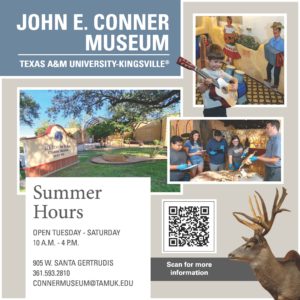Drama/Art building closed indefinitely
Last week, major changes were made by the Department of Art, Communications and Theatre (ACT) in response to the ongoing issues regarding the broken air conditioning and mold outbreak in the Drama/Art Building on campus. Classrooms and offices in the building that were heavily affected were relocated to nearby buildings to provide an effective work space for faculty and students.
“It just got to a point where it became so hot and very uncomfortable,” Senior Education student Maxine Perez said.
Students endured difficult working conditions for the first three weeks of the semester and are now able to enter rooms that provide favorable learning environments. However, the relocation of these students was not the initial attempt at a solution as a response to the problems.
The first attempt to reduce the heat was to implement dehumidifiers and portable AC units in each of the affected rooms, but ultimately that was not enough to host a conducive teaching and learning environment.
“There was a big push for answers and solutions,” Adjunct Professor Omar Antonio Gonzalez said.
Many conversations took place between faculty and departments in order to reach a solution. The process to execute a plan soon followed.
“We did the first change on Tuesday/Thursday schedules,” Department of ACT Chair Todd Lucas said. “What they had done wasn’t working, so we’re battling AC humidity, and since they can’t get the humidity under control, that’s making the mold situation worse so we’ve gone ahead and moved the rest of the classes out.”
The Department also offered faculty with offices in the Drama/Art Building new offices in Manning Hall until the Department can go through a mold abatement process.
“As soon as I was given the green light, I vacated,” Gonzalez said.
The new classrooms and offices offer a second chance at health for all who previously struggled with any respiratory symptoms caused by the mold.
“The rooms are a lot more comfortable heat wise, there is no mold in the classrooms, and the acoustics are much better because we don’t need a fan on. It’s more conducive to learning,” Professor Dr. Manuel Flores said.
While the university continues its efforts to correct the humidity issue in the Speech/Drama building, students can effectively pay attention to the lessons being taught in their new classrooms for the meantime without having the extra distraction of portable fans and AC units.
“Now, professors and students will be able to function and learn without any complications,” Perez said.
This isn’t the first time a mold outbreak has occurred at the university, or in this particular building.
“It seems that this has been an ongoing problem that resurfaces every now and again which disrupts the learning and teaching experience. I would hope that preventative measures are implemented so history will stop repeating,” Gonzalez said.
Associate Professor Jesus De La Rosa was another faculty member who was heavily affected by the spreading mold in his office and the humidity in his art rooms.
“[The University] just has to be more vigilant with everything that can affect students and faculty health wise,” De La Rosa said.
Even though the issues in the building are severe, ACT moved as quickly as it could to find a solution.
“I think for an immediate solution it’s the best we can do on such short notice during the middle of classes,” Lucas said.
Even though the physical changes were made through the ACT Department, the students were the real heroes, Flores said, because they showed up to classes, despite the physical conditions and despite COVID.
“I’m very proud of them because they kept coming to class and they didn’t complain. They weren’t happy but they didn’t complain, but that’s the type of students we have here at Texas A&M Kingsville,” Flores said.
The university continues to work on resolving the mold issue affecting buildings on campus as they await supplies needed to correct the AC failures throughout campus.

